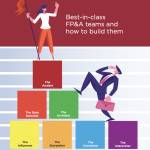The 6th in-person Toronto FP&A Board event welcomed 29 like-minded FP&A leaders. FP&A professionals gathered in the cozy premises of SPACES venue on June 13th, 2023, to discuss the essentials of building the best-in-class FP&A teams and the most vital FP&A team roles.
Introduction
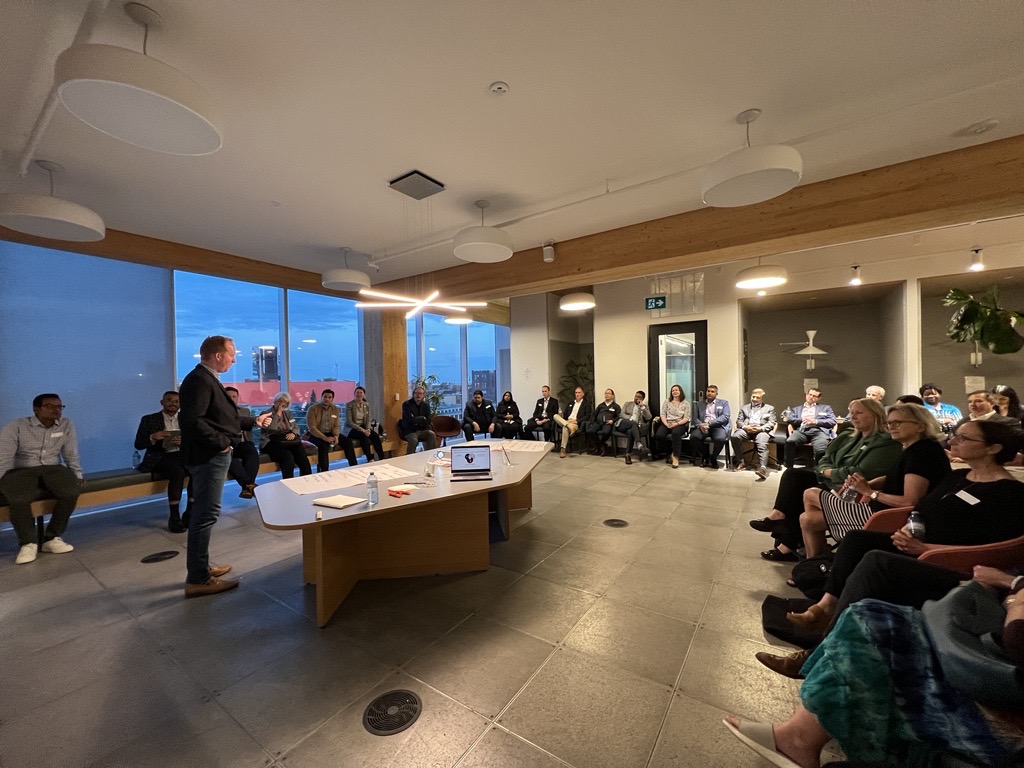
Figure 1: Toronto FP&A Board Meeting (June 2023)
At 7 PM, all participants took their seats while Larysa Melnychuk, Managing Director of the International FP&A Board, chaired the meeting. Larysa introduced herself, and the mission of the FP&A Board and provided an agenda for the hours to follow, which consisted of the following:
- Skills for the future: Building the best-in-class FP&A team
- Discussing the five essential FP&A Team Roles
- "My path through the 5 FP&A Team Roles", presentation by Garrett Dennie, CFO at Knix
- Small groups work
- Conclusions and recommendations
After a short introduction, each attendee shared a critical skill they considered the most important for a modern FP&A professional. It was interesting to discover that the inputs were of very similar pattern. Some of the essential skills frequently mentioned were as follows:
- Agility
- Critical Thinking
- Collaboration
- Business Partnering
- Value management
- Curiosity
- Proactivity
- Storytelling
Larysa also shared with the FP&A Board the top 7 trends shaping the FP&A in 2023 and beyond, which are as below:
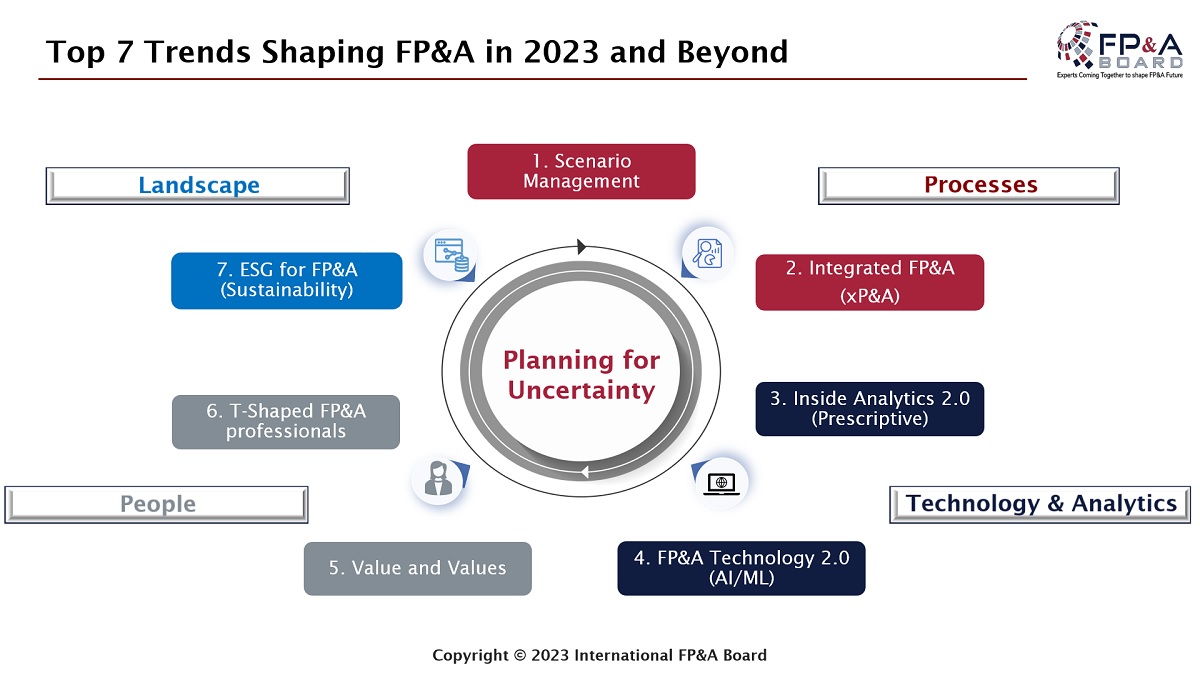
Figure 2
Which Challenges FP&A Professionals Face
These top skills sprung questions Larysa raised about data and the challenges and opportunities arising from emerging Artificial Intelligence (AI) developments such as ChatGPT and Machine Learning. Most participants mentioned that they have not yet worked or collaborated with the new advancements. Indeed, a few shared their thoughts on challenges. One of the participants explained how the vast number of data sources eventually created this black hole in which it became unclear to understand the results and whether they could be reliable.
Continuing with the discussion on data, Larysa highlighted a survey conducted by FP&A Trends Group for the seventh year in a row. As seen in the results below, most of the time was spent performing low-value tasks such as data collection and data validation.
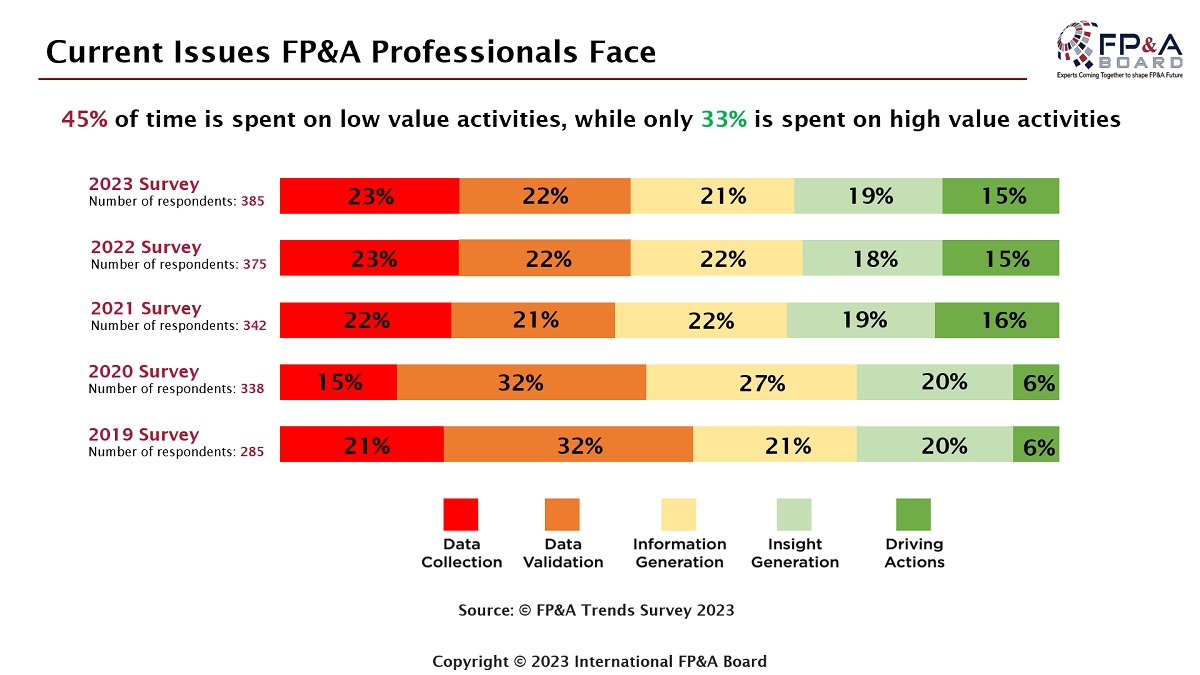
Figure 3
5 Key FP&A Roles in the Focus of the Toronto FP&A Board
Larysa led the discussion and shared how we can remove these non-value-adding tasks by leveraging the key five FP&A team roles:
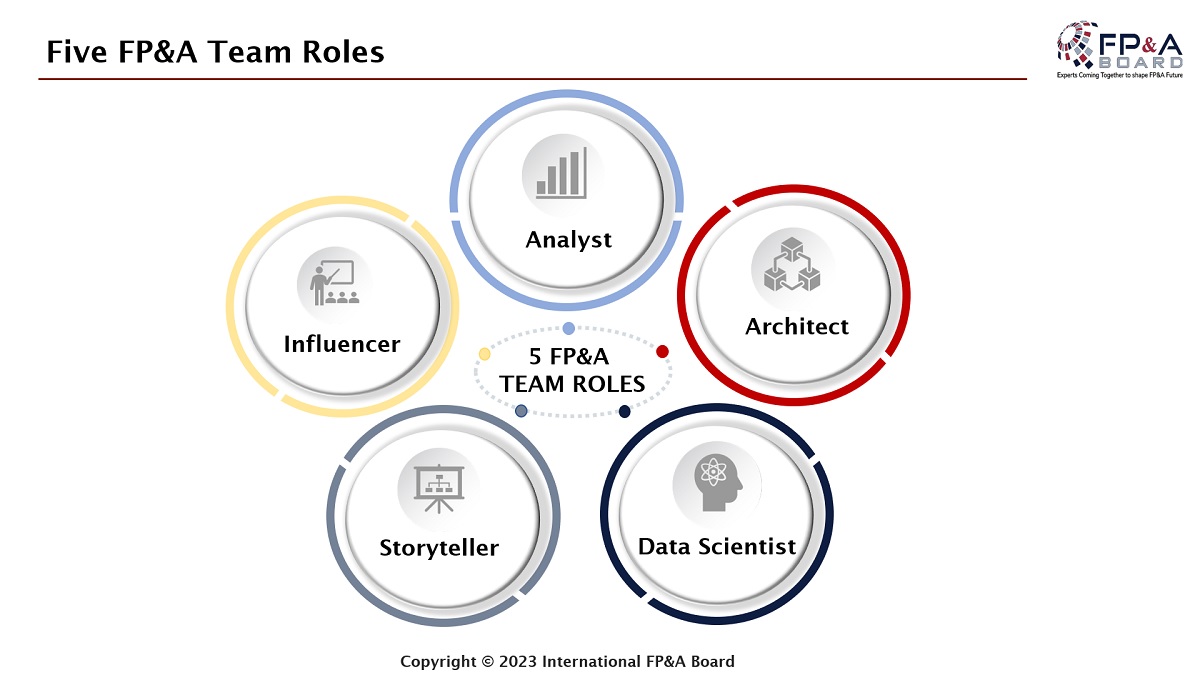
Figure 4
To recognize the significance of these skills, Garrett Dennie, CFO at Knix, presented his own valuable experience and insights on each of the five critical roles.
The forum also addressed the importance of the other two emerging roles (FP&A Interpreter and FP&A Connector).
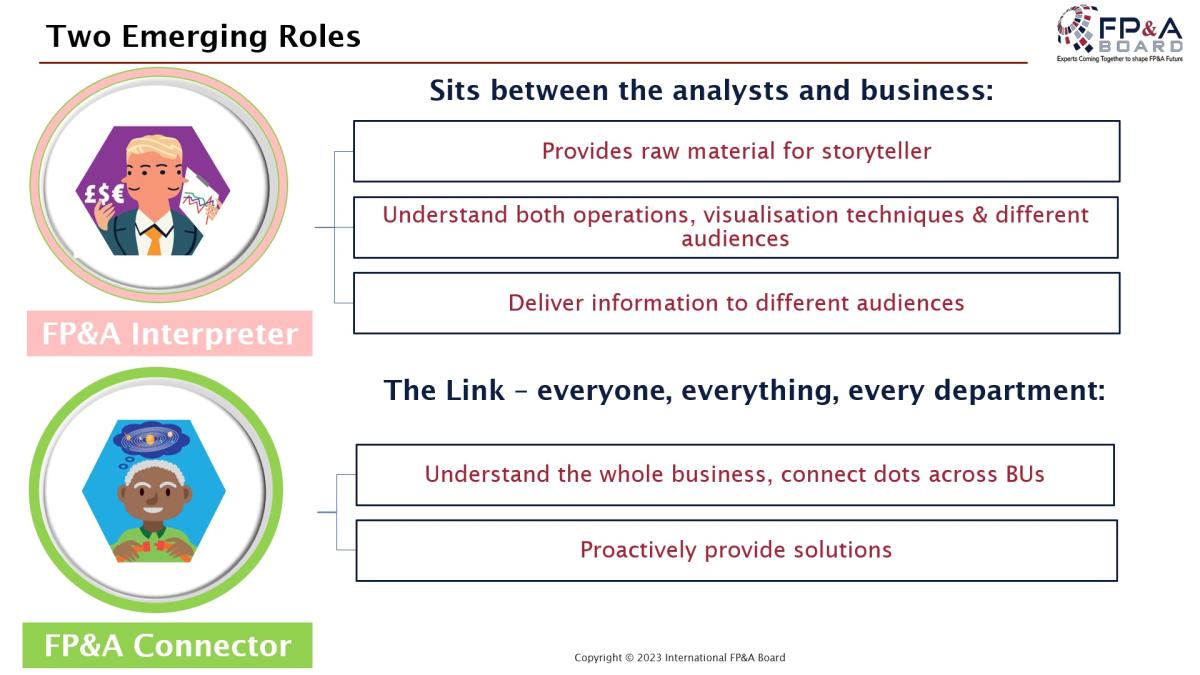
Figure 5
Using the FP&A Board Maturity Model for Building a Modern FP&A Team
Larysa shared with the attendees the FP&A Maturity Model developed by the International FP&A Board. It evaluates an organization’s maturity in six dimensions and enables them to create a transformation plan. By assessing their approach to leadership, Business Partnering, processes, functional skills, data & analytics, and technology, organizations can improve their FP&A capabilities and drive strategic decision-making.
Group Work
The FP&A Board Members were split into three groups and were each given a topic to discuss. The discussions were focused on the practical steps for each area, including leadership, functional skills and Business Partnering.
The points of view were as follows:
1. Leadership
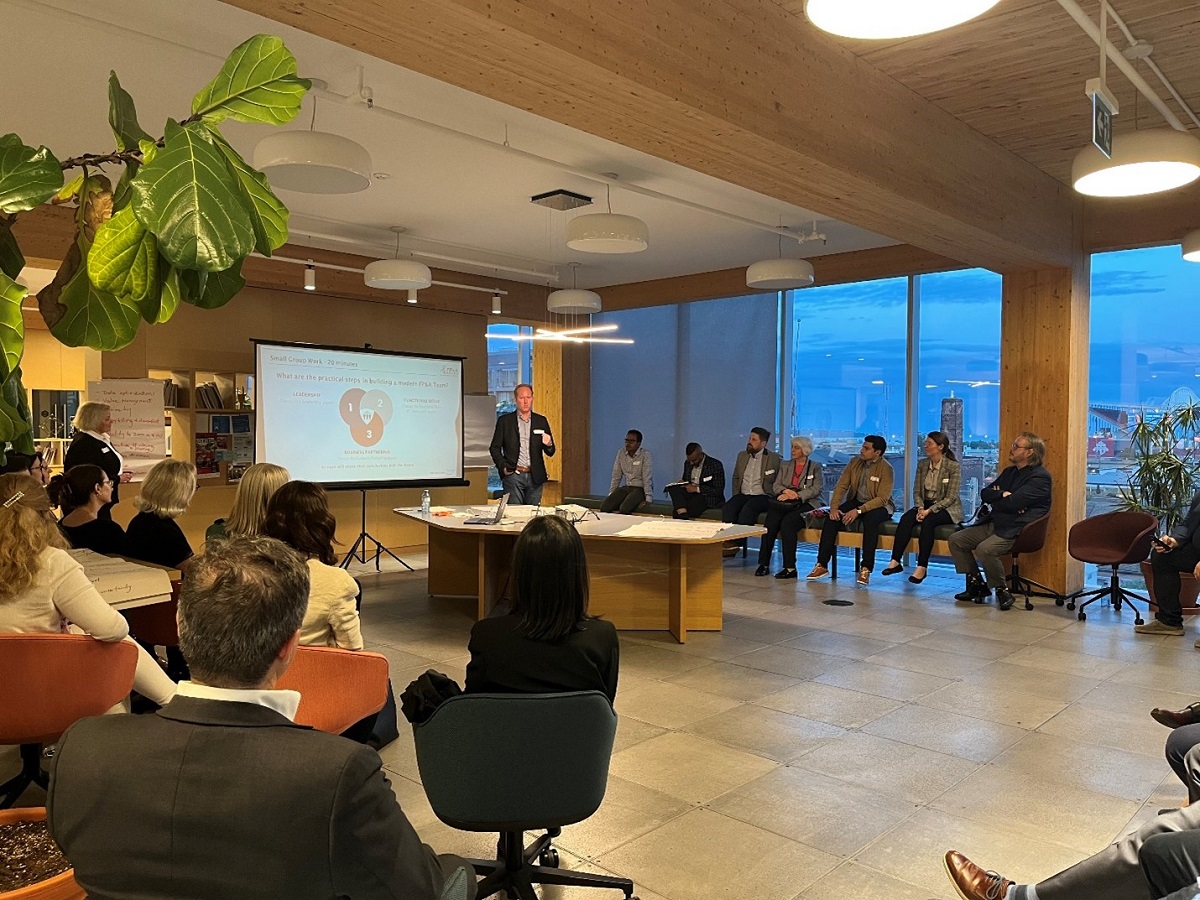
Figure 6: Brad Farrow shares the results of a group discussion on leadership
Below are crucial quotes for successful leadership, per the Toronto FP&A Board Members.
- Push out of comfort zone to increase confidence
- Collaboration
- Empathy
- Create a destination for your journey
- Remove barriers
- Focus/Prioritization of tasks
- Recognition and Feedback Loop
- Empower growth
- Sell a vision
2. Functional Skills
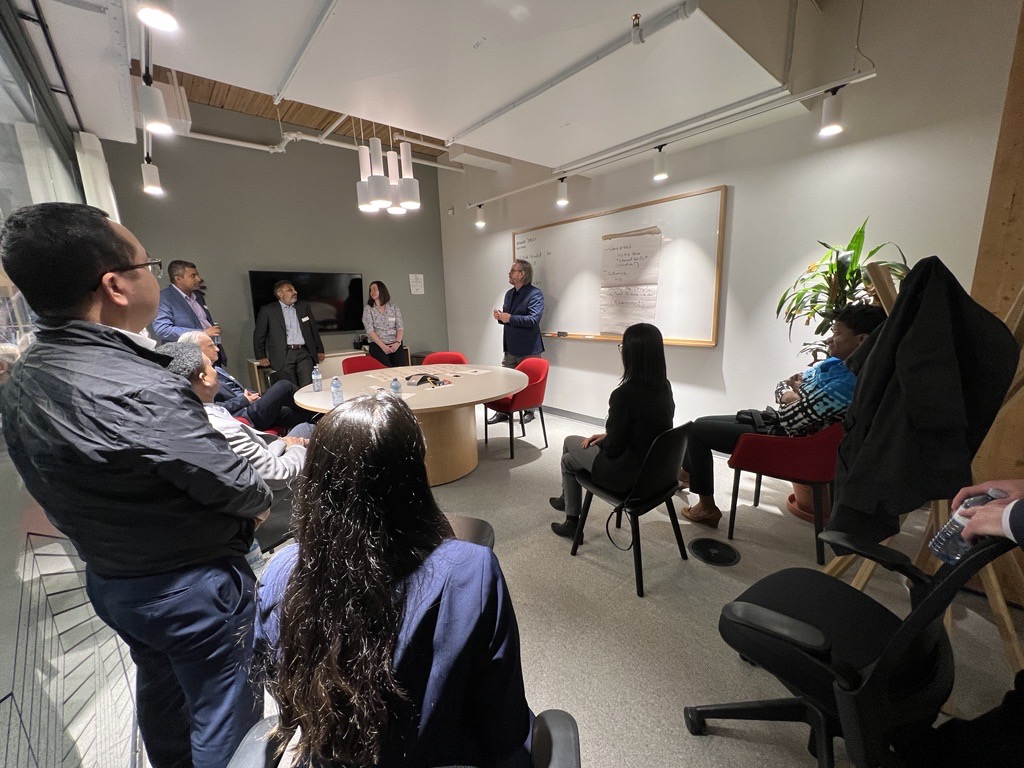
Figure 7: This group discussed Functional Skills
- Assessment is key: evaluate needs of team and business
- While it is easier to help analysts master storyteller’s and influencer’s roles (soft roles), technical roles are hard to develop as it requires time, especially FP&A Data Scientist roles
- Buy vs Make in evaluating skills: Both have their own merits and challenges o Make requires mentoring, involvement in special projects and special training o Buy brings resources and skillsets to be utilized immediately.
- Most people remain analysts, and therefore hard to move them to other roles
3. Business Partnering
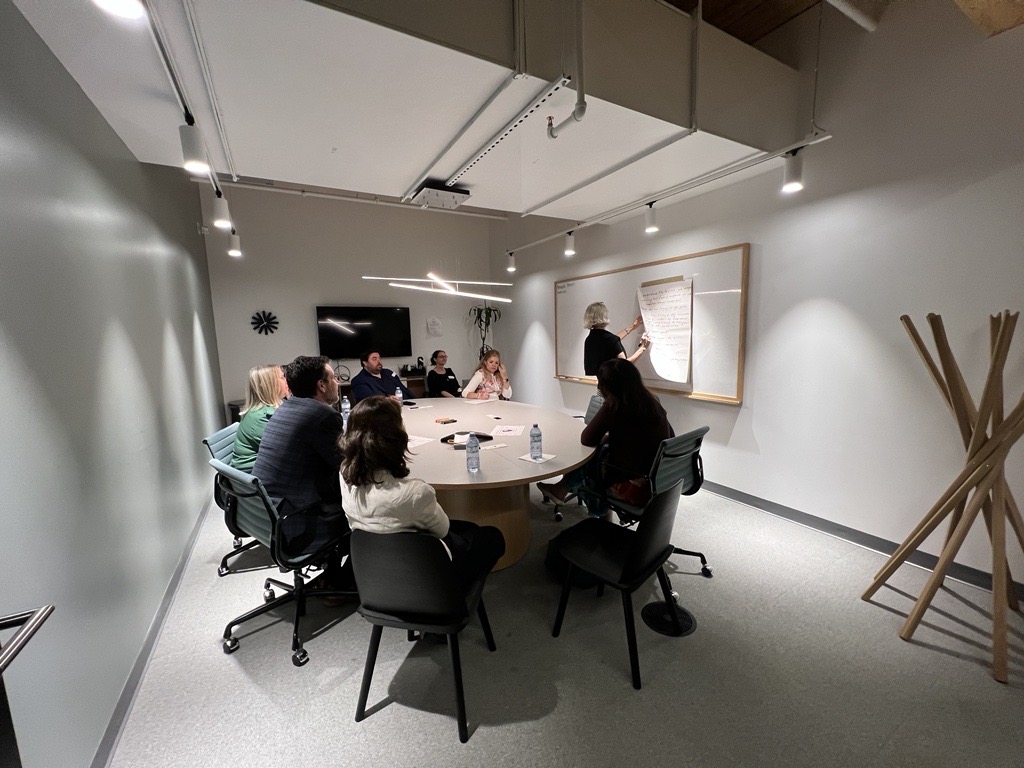
Figure 8: Discussing Business Partnering during the Toronto FP&A Board meeting in June 2023
The insights from the group discussing Business Partnering were as follows.
- Understanding the business, goals and strategies
- Earning trust, a vote of confidence from/with leadership, colleagues (cross-functional)
- Speak the same language as your business partner
- While building a team, looking for strong communicators, curiosity, and mindset are key. FP&A has to be trusted advisors, courageous, able to challenge the status quo, connect the dots, recommend solutions
- The role is dual – FP&A team can be a profit controller
- Add value, provide insight (move to “the so what?” stage)
- Need to immerse yourself in the business
- We are the bridge between the numbers and action
- Mindset shift: from analysts to storytellers/influencers
- Listening is a critical skill
- Flexibility; ability to pivot
- Critical thinking, navigating uncertainty
Conclusion
During the 6th Toronto FP&A Board meeting, the attendees reached a consensus regarding the numerous significant obstacles influencing the traditional FP&A function's ability to meet the current business requirements effectively. Leveraging the five critical roles necessary to establish an exceptional FP&A team is a demanding yet thrilling process that entails ongoing investments in resources and skills, effective governance, consistent coordination, and transparent communication.
We are grateful to SAP for sponsoring this meeting. Thank you, IWG, for your help with the organization of this event.







